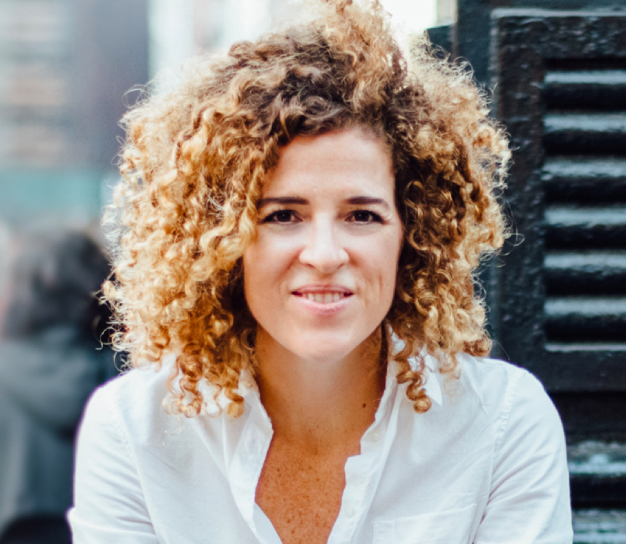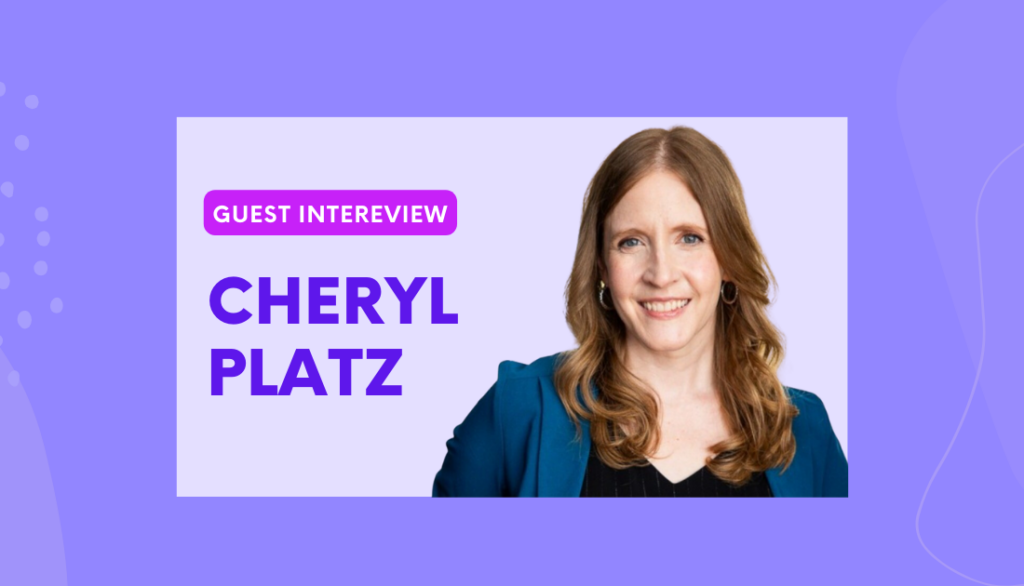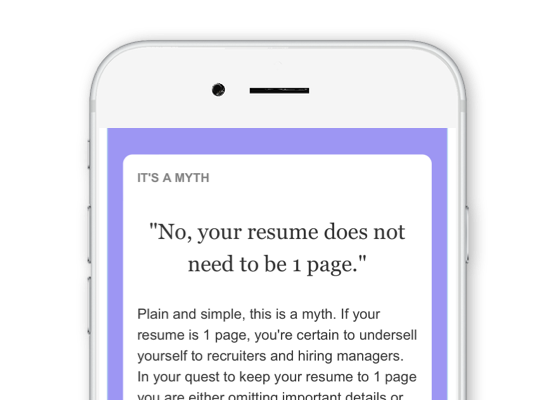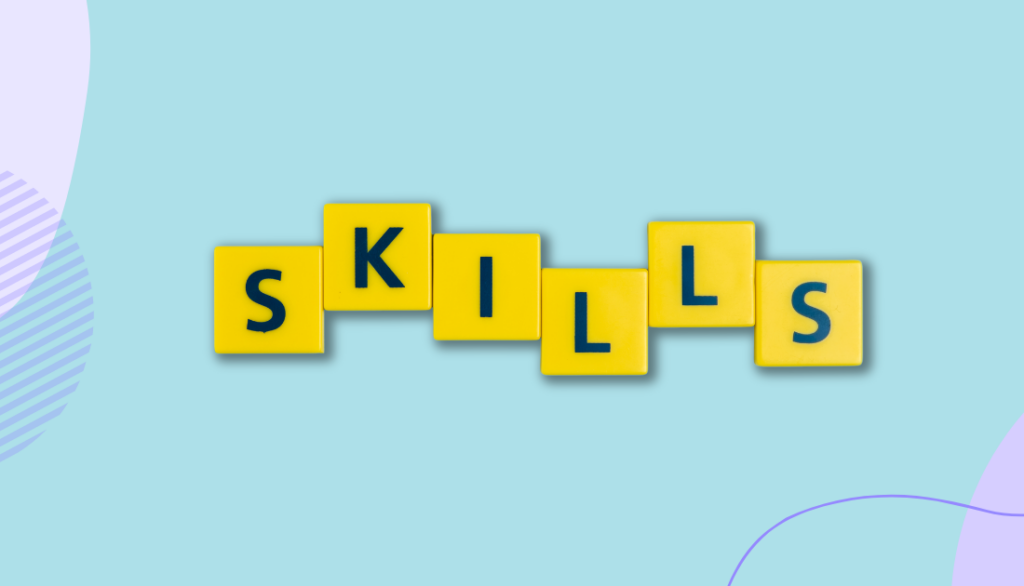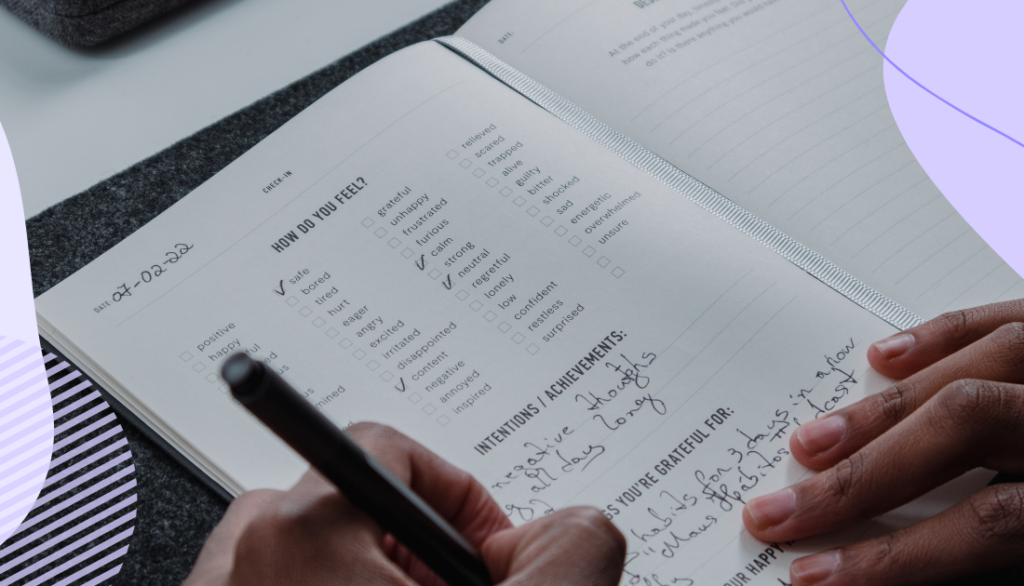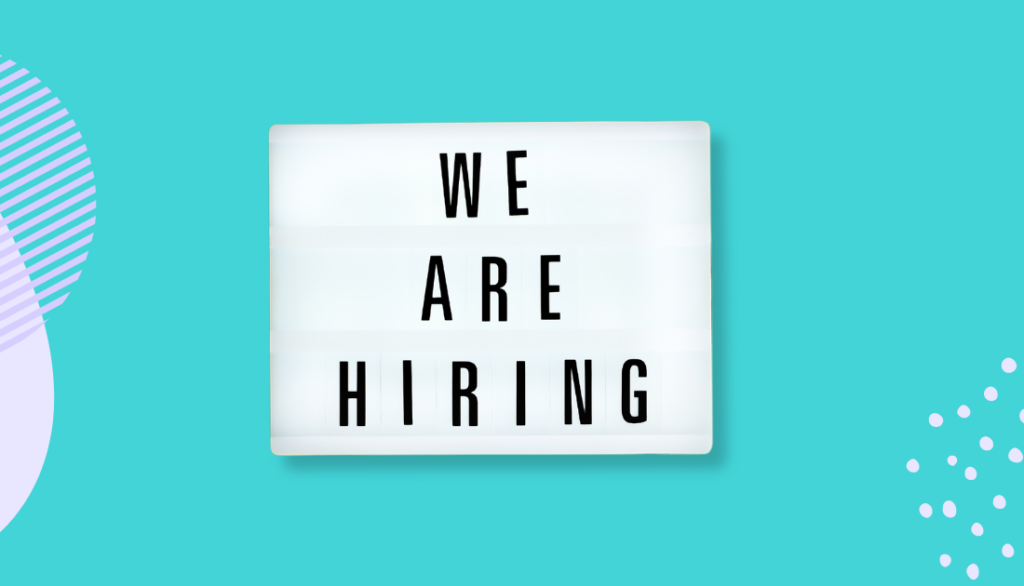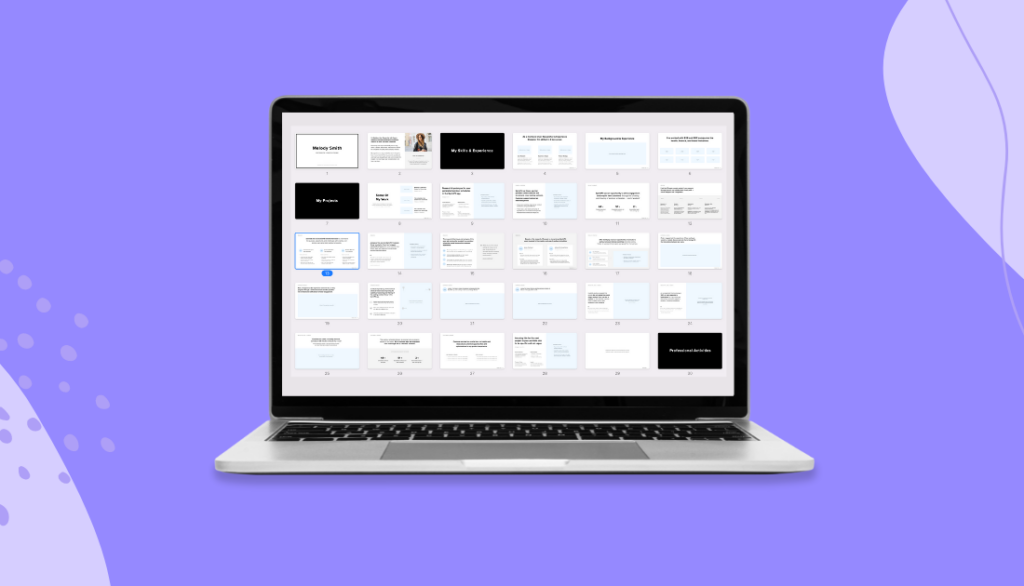Episode 67
Building a UX Portfolio to Get Hired – Sarah’s guest appearance on the Ironhack Podcast
55 min listen
Episode 49
55 min listen

Listen to the Episode
Episode Summary
In this episode, listen in to Sarah’s guest appearance on the Ironhack podcast where she discusses strategies for transitioning into a UX/UI design career and shares insights on portfolio building, career networking, and mental well-being in the tech industry.
Listen out for practical tips for crafting a compelling portfolio, navigating remote interviews, and connecting with the UX community. The conversation also delves into the complexities of imposter syndrome, the power of positive thinking, and creating goals in a constantly evolving industry.
Even if you never show your portfolio to anyone, the very act of creating one will help you think through what you’ve done in the past and more strategically communicate your skills and experience not only in your resume, but in interviews too.
Listeners will gain valuable advice on building confidence, recognizing professional growth, and planning a career roadmap in the tech world. Whether you’re considering a career change, seeking to maximize your UX portfolio, or aiming to navigate the challenges of the tech industry, this insightful episode offers actionable strategies and anecdotes to support your career journey.
Create your dream career, and life
- Book a free Career Strategy Call to learn how we can help you
- Get our free Career Roadmap to help you navigate your career
- Check out Career Strategy Lab, our 3-month career coaching program
Discussion Questions About The Episode
- How have your previous experiences or skills influenced your interest in pursuing a career in user experience design, and how can you leverage these to create an impactful portfolio?
- In what ways do you currently approach building confidence in your career pursuits, and how might you reframe any negative self-talk or imposter syndrome to empower yourself?
- Consider the concept of "unspiral" and the 3 p's (pause, ponder, proceed). How can these steps be applied to assess and reframe negative thought patterns that could potentially hinder your career advancement or personal growth?
- Reflect on the impact of online communities, social media, and in-person networking in your own professional journey. How have these platforms influenced your career decisions and connections, and what strategies can you implement to maximize their value in your career strategy?
- Discuss the significance of embracing continuous learning and the necessity of adapting to an ever-changing tech industry. How do you currently approach setting long-term career goals given the rapid evolution of technology, and how might a structured career roadmap help you navigate this uncertainty with confidence?
Episode Transcript
Sarah Doody [00:00:00]: Hey there. I’m Sarah Doody, host of the Career Strategy Podcast. Many professionals are seeking more impact, flexibility, growth, and let’s face it, getting paid what they’re worth. But how do you unlock this in your career? It starts with strategy. I’m taking you behind the scenes of what’s working for my career coaching clients. You’ll hear strategies and actionable, yet sometimes against the grain, advice for how you can be the CEO of your career and stop in Mondays. Ready to level up your career? Let’s get after it.
Erin Lindstrom [00:00:38]: This episode of the Career Strategy Podcast 1st aired on the Ironhack podcast, and it is such a great episode we decided to share it with you here. If you’ve never heard of Ironhack, Go over to ironhack.com. Check out their website. And hot tip, if you click over to resources and then go to free resources, there are Courses and podcast episodes and just so much that you can dive into if you’re looking to learn more. Without further ado, here we go.
Tim Stephens [00:01:05]: I’m turning with Tim. Very cool episode for all of you UX, UI designers out there who are In the grind of getting your portfolio out the door and getting your career started well, actually, I think anyone, Tim. Anyone anyone of our listeners who’s looking to, You know, move into that new job they’ve been dreaming of.
Dan Parry [00:01:25]: Yeah. Who needs a bit of motivation? They might be in it, and they might be feeling the burn a little bit. Mhmm.
Tim Stephens [00:01:29]: So you’re about to hear a conversation between us and Sarah Doody. Sarah Doody runs the career strategy lab, which is a 6 month career accelerator program, which focuses on how to get people’s portfolio correct, how to write a killer CD or resume or resume. Like, a c CD, like a
Dan Parry [00:01:48]: a Same thing. Yeah. Curriculum V Time, I think.
Tim Stephens [00:01:51]: Not to say. Is it is it like a British Slang. I’m pretty sure it’s you. Yeah.
Dan Parry [00:01:54]: It is. Yeah.
Tim Stephens [00:01:54]: It is. It’s it’s It is. See resume for English. Yeah. Resume for the internationals out there. Yeah. Yeah. So everything you need to know about how to How to stand out and how to nail that job.
Tim Stephens [00:02:03]: But we talk a lot in this episode about mindset, correct, you know, Side of the UX UI sphere.
Dan Parry [00:02:21]: Yeah. And and her her herself is a is a career changer, which is also Doody news for any people who are out there who are thinking about taking a boot camp or, pivoting on what they currently do in the world. Alright.
Sarah Doody [00:02:33]: My name is Sarah Doody. And where am I? I currently live in Salt Lake City, Utah, which if you’re not familiar with that, is maybe 8 hours away from Las Vegas. But I moved here because there’s world class Skiing. I grew up in Canada skiing. And after living in New York City for 13 years, I thought I’m just going to take a risk, move somewhere. I don’t know anyone, and It’s been wonderful, and I have to admit, I was skiing for an hour this morning before we recorded this. And what Specifically, do I Doody? You know, it’s been an evolution, and I’m sure we’ll get to kind of that story. But for the past 10 years, I’ve been running my own user experience consultancy where I mainly focused on research and experience design.
Sarah Doody [00:03:22]: And just to Completely Sarah. What I mean by experience design is thinking through the user journey, customer journey, product strategy, And that whole experience, I don’t do the visual design nor do I do coding. But these days, what I do, In 2017, I kind of fell into the world of UX career coaching for lack of better word better words. And it It started really with portfolios, and now it’s evolved into kind of an end to end career coaching service that Helps people with everything related to getting that next role.
Dan Parry [00:04:06]: And was that when the in the the initial step with the portfolios, is that for people that didn’t have Any portfolio to speak of? They didn’t have any experience of making portfolios or they just couldn’t put their career into, like, a good portfolio?
Sarah Doody [00:04:17]: Yeah. Great question. Let me tell you how this all started. So in 2017, I received a lot of emails That said something along the lines of, how do I make a portfolio? How do I create case studies? How do I show my work in an interview? And To be honest, I just tucked those all away in the email folder because there was so many of them. I didn’t have time to reply to all of these. And then, You know, the product manager slash researcher in me thought to myself, I’m just going to solve this problem. And my solution was A 1 hour lunch and learn workshop that I charge 29 or $39 for, and I sent it out to my email list. And I think within 24 or 48 hours, 85 people had signed UX.
Sarah Doody [00:05:08]: And then I thought this is too many. I have to shut this down. But I taught that workshop, and then people started to get hired. And then they told me That was a great workshop. I wish this was 4 weeks long so you could, you know, give me feedback, etcetera, etcetera. So, all that to say, It really is intended for people who have, some experience and need to make that portfolio. So if You are starting out kind of in your educational journey with user experience, and you’re not quite sure, You know, the difference between what a researcher does, what what an Experience designer does, the difference between UI, UX, it might be a little premature for you, but, Even for people who are what I call career switchers, like maybe you worked in journalism or maybe you worked as a teacher. I often say to them, you know, you probably have things you have worked on in your past that could be framed as things that we do in user experience.
Sarah Doody [00:06:15]: I I once had this teacher who was working with me, and They had done a bunch of research and development of curriculum, and they wanted to be a user researcher. And I said to them, well, You could probably take that research project you did for the curriculum and turn it into a project for your portfolio. So I think maybe that’s One thing people can keep in mind when it comes to how do I get experience if I don’t have a UX job title right now. Does that make sense?
Tim Stephens [00:06:44]: Yeah. I think it speaks very heavily to a lot of our listeners too. A lot of them are either at the beginning of a boot camp or Just finished a boot camp. So, you know, 12 weeks and a lot of them are careers, which is that’s a big big part of the Ironhack, of the Ironhack audience, our careers, Twitch, I think, by definition. So I think that’s like a very, very, interesting resource to dive into.
Dan Parry [00:07:04]: And I think we’ve we’ve we’ve, spoken to so many people about this whole, like, Applicable skills thing as well, where, you know, you might not think, oh, I haven’t ever written code before, so I can’t be a web developer Or I’m not skilled, but, like, there’s so many adjacent skills, and being able to match those altogether is is actually like it’s it’s a really big skill in itself, I think.
Sarah Doody [00:07:23]: Yeah. I think it’s it’s it’s kind of a a superpower of a user experience person to begin with. Right? Connecting the dots between things and start with yourself and connect the dots from your previous Experience, whether you were, I don’t know, like UX Criminal investigator, and now you wanna be your UX researcher. Great. Yeah. I mean
Dan Parry [00:07:43]: I thought you were just gonna say if you you might have been a criminal.
Tim Stephens [00:07:45]: Yeah. No.
Sarah Doody [00:07:47]: Well, if you you could be a criminal and make a great user experience designer, I’m sure, especially when it comes to stakeholder negotiations.
Tim Stephens [00:07:54]: This questionnaire after I’ve robbed you. So speaking of, career switching, you wanted to be a neuroscientist. Correct?
Sarah Doody [00:08:03]: You know what? I did when I was in high school. Yep.
Tim Stephens [00:08:06]: I’m very interested to hear this this journey. How did that how did that go?
Sarah Doody [00:08:09]: Well, I’m not sure what this will say about me, but I didn’t really know what to do with myself when I was in high school. And I will say I was always very creative. I was always really good at writing and science and kind of that balance of right and left brain. And I thought to myself, I wanna have a stable job, so I’ll become a doctor. But I don’t do well with kind of The gory side of medicine. Right. And I all so I thought to myself, neuroscience, you know, that seems tolerable. So I I, got accepted to a really great program, where I grew up in Ottawa, Canada.
Sarah Doody [00:08:51]: And then long story short, I ended up taking a year off, and I didn’t pursue it. But what interested me, I think, was the mind body connection And, like, the power of the brain and the psychology side of things as well as the physiological side of things. But that never happened, didn’t play out. However, you know, looking at what I do in user experience, I think There are a lot of topics that topics and strengths that you need to be a a UX designer that are very adjacent to what I probably would have been doing with neuroscience. I think I probably would have fallen into more, you know, like, behavior and things and not maybe a neuro urgent, but
Tim Stephens [00:09:40]: Yeah. I mean, it’s that’s very interesting. We talk a lot about, like, this concept of imposter syndrome on the Mhmm. On the, on the podcast, especially with, like, there’s a lot more of our coders. But, obviously, the UXUI students as well have the same sort of, Experience, I think, especially when their career is switching and stuff. So it’s always really cool to talk to someone who comes from such a totally different background and to kind of Explain to people or, like, show them that there really are so many parallel skills or reusable skills that can be can be taken into this world. So Mhmm. And now it’s and what’s it called? The it’s called the, career strategy lab that you run now.
Tim Stephens [00:10:16]: Right?
Sarah Doody [00:10:16]: Yeah. The career strategy lab. And I would say, When I I’m such a analytical person and kind of, like, just get things done type person. And so when I created this program, you know, it really is extremely granular instructions of How to make your resume, and here’s an example of a good, better, best bullet point. You know? And Mhmm. What I didn’t focus on was Kind of all the underlying issues that come up despite having the instructions on how to make a resume, How do you deal with exactly what you Sarah, the imposter syndrome, the confidence, etcetera? And it’s kind of continuing with our discussion on, Neuroscience. I spend a lot of time listening to, like, different Brene Brown podcasts and things, and I think it was in episode or no. She was on Dax Shepard’s podcast, Armchair Expert, and they were talking about the power of The stories that our brains make up.
Sarah Doody [00:11:26]: And, she Sarah, When things happen, our brain needs to know the outcome. Otherwise, we will, For lack of better word, kind of like spiral and fester and make things up. Like, for example, you, you know, your phone rings and you think to your And it’s your mom or something, and you think, oh, no. Like, the worst has happened. Something is wrong with someone in the family and, like, you know, worst case scenario, catastrophizing, I guess, is the right word. And she Sarah, we do that because our brains need to know the the ending so they don’t have to be in this messy middle. And The point of what she was saying was our brains don’t know the difference between fact or fiction.
Dan Parry [00:12:13]: Mhmm.
Sarah Doody [00:12:14]: So if you can Change that story from a negative one to a pod positive one. It’s almost like you’re trying to tricking yourself into Shifting from that negative to the positive. So I know it’s easier said than done, but I think it’s something to keep in mind because the longer you fester in negativity or get caught in comparison in things, you know, the worse it’s gonna be. You’re absolutely right.
Dan Parry [00:12:40]: It’s crazy that you mentioned that because I just finished reading a book, She,
Tim Stephens [00:12:43]: And you couldn’t tell if it was real or fake?
Dan Parry [00:12:45]: Yeah. I I was am I reading this? It was on a Kindle as well, so I was just like, is this a book or what? No. It’s, About a a woman, who’s a she’s a neuroscientist, and she has all these concepts about how you how your brain is basically always trying to trick you And, like, a pull you away from your focus and what your focus should be and, like, this whole sort of idea of currency of attention and stuff. And one of the concepts she discusses in the book is very similar to what you’re saying, which is this whole, dropping the story, this idea of dropping the story where you’ve gotta be able to sort of see what your brain is It’s trying to give you this, like, as you say, it’s giving you a middle, and then it’s trying to push you towards an end, be that positive or negative or however it’s skewed. But, really, what you need to be able to say is like, okay. I’m gonna step 1, you know, pace away from this and then realize that my brain is just coming up with Something to fill this fill the void almost. And then, yeah. And then you can kinda reassess and and kinda see what’s What what was really going on and be a little bit more, objective of of of the situation.
Tim Stephens [00:13:46]: So in this power of positive thought, right, it’s almost Like, the same thing is, like, repackaged and giving toys in loads of different ways. Like, I don’t know you know, that really, really famous book, the secret. Right? The Mhmm. The core the core, teaching, at the learning, at the middle of that is that, like, whatever you think at, that whatever you project onto the world will We’ll come back at you, and there’s so many different ways where it’s like positive thinking is such a good way to move forward. It’s the same kind of thing you were saying then. It’s about, like, You’re exactly right that it’s much easier said than done because it almost feels condescending to say to someone, well, just think positively all the time Right. And ignore the bad thoughts in in your head, and this will eventually lead to a better path. And I wish there was an easier answer, but it really is, like, hard work and positive thought.
Tim Stephens [00:14:30]: Right?
Sarah Doody [00:14:31]: It’s funny you mentioned this because, at the beginning of 2020, I worked with a book coach because I was writing a book. Maybe I still am. Maybe this will be the podcast that brings the book back to life.
Dan Parry [00:14:46]: But It’s an exclusive. It’s coming back. I’m bringing the book back.
Sarah Doody [00:14:50]: If I don’t write the book, here it is in a tweet. No. The the book was really around it it wasn’t going to be a UX book because a lot of people want me to write a UX book, and I for whatever reason, I’m not jazzed about that. Okay. But I thought So many people can benefit from a key skill set of UX, which is Context finding and context setting and, you know, communicating context to other people. And I thought to myself, What if I could teach the skill of context to, like, the masses, and allow people to use it in a way that helps them get out of this kind of messy, catastrophizing, Spiraling. I called it spiraling. It was going to be called unspiral, but I think we tossed that out the window.
Sarah Doody [00:15:44]: But The book was really gonna be quite simple. The 3 steps to how you unspiral or stop catastrophizing are It’s 3 p’s. It’s super simple. The 1st p is to pause. The 2nd p is to ponder, and then the 3rd p is to proceed. Because As you said, like, it’s easy to say, oh, just be positive or, you know, don’t think those negative thoughts. But I think our brains kinda need to, like, Process those thoughts and filter out what is real, what is not. So the pause step was really all about Recognizing that you’re kind of careening down the catastrophe highway.
Sarah Doody [00:16:25]: And then the 2nd step of ponder Really was where UX came in. It was all about how do you kind of step back and ask yourself, are these thoughts or things that are happening. Are they real things? Are they things I’ve made up? Are they assumptions? You know, think of interpersonal challenges that we all have. Like, A lot of times, we kinda make up stories about people, but if you think to yourself, is that real or is that just something a story I told myself? So filtering out all the Real or fact fiction, assumptions, etcetera, and then proceeding with, You know, a new lens that is rooted in reality and not these assumptions, etcetera, that we make up. So I don’t know if that’s helpful to people, but I the book coach and some other people have said, I told people about the 3 p’s, and they all get it. You need to write the book. So Yeah.
Tim Stephens [00:17:20]: I like that. I think most of my schooling life was the 2 piece, procrastination followed by panic. So write it. Write that book. That’s a really that’s a really nice that that’s so much further reaching and useful to the rest of your life around UX UI. It obviously fits very well into the UX, like, mindset, but just like you could you could apply that to physical mental health physical health. Mhmm. Physical fitness.
Tim Stephens [00:17:45]: You could do anything with that. Cleaning your home. Like, what should I throw out? Pause. Yeah.
Sarah Doody [00:17:50]: I I I think it just goes to the point. You know? Sometimes You can say be positive, etcetera, but sometimes people need the step by step, You know, it the 3 p’s, they really came from thinking about what were kind of childhood things we learned. And I grew up in Canada. I assume This kind of analogy is in other countries, but, you know, when when the fire department came to elementary school and taught us about fires, We learned stop, drop, and roll. And it’s really easy to remember. Oh my gosh. There’s a fire. I need to stop, drop, and roll.
Sarah Doody [00:18:26]: So I thought these 3 p’s, It’s so easy to remember. And even if you remember 1 of them, you’re still better off than if you had just cut catastrophizing.
Dan Parry [00:18:34]: Yeah. Exactly.
Tim Stephens [00:18:35]: Yeah. The structure the these structural things are are super useful. I think that’s a
Dan Parry [00:18:40]: I think it’s even important when you’re in a, when you’re in a positive Play a mindset as well because sometimes and I’m sure it’s the same with UX, but if I’m coding and I feel like I’m in a flow, It doesn’t even really matter if I’m going in a good direction. It’s just like, oh, this is actually really flowing. I haven’t had to Google anything for ages. Like, I feel like I’m really improved at this blah blah blah. And then you actually look back what you’ve written, and you’re like, this is fine, but it’s not like This isn’t gonna go to production. You know?
Tim Stephens [00:19:08]: Mhmm. Well, that’s the power of habit. You’re talking so you like, you have these structural things. Let’s say we take the 3 p’s. The the reason the power of habit’s important after that is because then to Can, like, it, you know, and then continue to keep these positive mindsets, not just set like, proceed and then never look back. You always have to continue to, like, build these positive It’s all pans, though.
Dan Parry [00:19:27]: Yeah. I think it’s it’s a really interesting discussion because I think that, I’m definitely seeing it more and more with people that I, like, admire in the space that they are definitely the ones who are, like, Pondering or, like, really sitting on things for a while before thinking, okay, this is what we should do. You know? Like, this is the decision we should make or this is how we should move forward. Now I think because everything is so much more hectic and busy and, like, you’re expected to be able as you say with the context, you’re expected to context switch instantly all the time. It means that you sometimes just, like, you get a message from someone. You’re like, yeah. I can do that. But, really, you should be thinking, okay.
Dan Parry [00:20:00]: Just wait a sec, and then we can, you know, Ponder. Stand your 40.
Sarah Doody [00:20:05]: So there’s a really great TED Talk. I don’t know if you’ve, watched it, but it’s called your brain on improv, and it’s by a I believe he’s a neuroscientist. He’s definitely a neurosurgeon. His name is doctor Charles Limb, l I m b, but he studies the brains of people as it relates to creativity. And he did this study, where he put Jazz musicians inside, an fMRI machine, which I don’t know how that’s different than MRI, but I’m sure Those interested can Google it.
Tim Stephens [00:20:43]: Yeah.
Sarah Doody [00:20:43]: But what he found is that he wanted to understand the relationship between, like, flow and creativity. And he found that when these musicians were inside the Sarah machine first, they played, Like classical music from sheet music, Bach or Beethoven, something like that. And then they were asked to improvise. And when they were improvising, that part of their brain that, is responsible for improvisation was lighting UX, and the part of their brain that was responsible for, negative self talk, self criticism. I forget the exact word, but that part of the brain, Like, the volume was decreasing on that part of the brain, so to speak. So back to imposter syndrome and flow. According to his research, if you can get into that state of flow, you then can help Decrease the volume on that negative self talk, etcetera. So I think a key takeaway for people is Try and spend less time comparing comparing yourself to other people and getting caught in all that trap all those traps and just, like, Dive in and work on your resume.
Sarah Doody [00:22:08]: Work on your portfolio. Code that project. And like you said, even if it’s wrong, who cares? You’re gonna come out of it, like Yes. Feeling better and, you know, probably having a lot of learnings even though what you made maybe isn’t perfect. I I think it could I think there’s a discussion to be had about mental health in in this industry for sure.
Dan Parry [00:22:28]: Yeah. For sure. That’s really, really insightful, actually.
Sarah Doody [00:22:31]: You would love the the TED talk, though. You have to watch it.
Dan Parry [00:22:34]: Okay. K. Yeah.
Tim Stephens [00:22:34]: I’m gonna I was I was trying to silently type
Sarah Doody [00:22:36]: that one thing. Have, like, they have footage of these jazz musicians inside this machine, and they rigged up a keyboard to their legs. And they’re, like, laying there playing the keyboard. It’s amazing.
Dan Parry [00:22:48]: Jeez. That’s awesome.
Tim Stephens [00:22:49]: Yeah. You talked about this a few times, though, Tim. I think it’s kinda the same topic, this state of, like, deep concentration. Right? Yeah. And, like, it’s context twitching and stuff, and I think that, like, it kinda goes hand in hand with confidence along the way. You’re focusing for so long. You you Yeah. It’s really hard to stop and see how far along you’ve come in your journey, like, to stop and look back and see.
Tim Stephens [00:23:09]: And I’m speaking to a friend of mine who’s very recently graduated, and, You always find yourself giving, like, ad hoc pep talks to people who are brand new looking for a job in the industry and stuff, and it’s like, trust me, I still don’t know these things, but if you spoke if you spoke to, you know, just a very simple command like npm install 3, 4 months ago, you have no idea what that even meant, and now that’s, like, a very obvious easy thing to you. So it’s you just it you just have to kind of focus on where you are and kind of shut out this this, You know, self doubt.
Dan Parry [00:23:39]: But that I mean, that’s that must be something that you could cover on the course because, that is one of the hardest things to do It’s like it’s like giving yourself those little pep talks as you’re going along and actually saying taking stock. Because I I was doing exactly that this year, And I was like, so, you know, start of the year, gonna be putting together, like, a list of things that I want to achieve at work. And I the first instant the first thought in my head, and I’m a I would say that I’m a confident person. The first thought I had in my head, I was like, what have I even learned? Like, what do I wanna learn? Mhmm. And then you look at it and it’s like, okay. That’s that was ridiculous because there’s so much that I’ve learned in the last, Yeah. And I think that, yeah, just being able to take stock and actually, like I mean, especially if you’re a a newbie and you’re like, okay. I’ve got a I’ve got an empty portfolio, and I wanna start somewhere.
Dan Parry [00:24:21]: Yeah. Just just being able to do that is is really difficult, I think.
Tim Stephens [00:24:25]: Do you know what I like to do to to reassure myself? I explain it to my mom, and she has no idea what I’m talking about. And I’m like, great. Trust me. It’s very com very complicated, mom. Don’t worry too much about it. She’s like, okay, Dan. That’s super Proud of you.
Sarah Doody [00:24:39]: I think that I think that brings up an interesting point though because, you know, in the I User the word tech industry as kind of a large umbrella there, but I think there is this kind of obsession with Continuing to stay up with the quote trends and latest things and new software and this and that. And I think that creates a lot of stress for people either coming into the industry or on the other side of it. I see this quite often. People who’ve been working in At least the UX industry for 10, 12, 15 years, and they all of a sudden maybe wanna switch jobs, but then Feel unqualified because they don’t know how to use Figma and this and that and know all about web 3 and whatever else. You know?
Tim Stephens [00:25:28]: Yeah.
Sarah Doody [00:25:28]: Yeah. Sure. Think that one of the first things we do with people when they join career strategy lab is, You know, we don’t jump right into make your resume, make your portfolio, etcetera, because our whole kind of approach is we want you to treat your career like a product. And as if you were designing a product, if you didn’t have a product road map, Well, guess what’s going to happen when you write the code or design the thing? It’s not gonna be right. So the first thing we do with people in career StrategyLab is have them do, what we call a career road map, and it’s kind of a miniature user research project on themselves. And they do things like look back in their career, whether it’s a UX career or a teaching career, journalism, whatever, and kind of evaluate when was I really fulfilled? When was I really not fulfilled? Where did I feel like I was using my strengths? I was not being User? And they go through and create this road map and a lot of the feedback and I was not anticipating this, but a lot of the feedback people give is that exercise was the best part of this program. Sure. I got a resume portfolio, etcetera.
Sarah Doody [00:26:42]: But through that exercise of creating a road map, They gain a ton of confidence because half of it is just remembering things you’ve done in the past. You
Tim Stephens [00:26:50]: know? Yeah.
Sarah Doody [00:26:52]: And one of the things they do is, Go and ask other people from their past, to answer questions about themselves. Theory being that We probably all have strengths that we are blind to, but someone else thinks of us and thinks, oh, they’re so good at x, y, and z. And A lot of people are able to uncover strengths that maybe they dismissed or just were totally oblivious to. So I think it’s really important to Pause and, you know, not be rushing on to the latest trend that we saw someone say we have to learn on Twitter, but Constantly take stock of what we’ve done and and how far we’ve come.
Tim Stephens [00:27:34]: It’s like you said, our brains are more comfortable when they know the outcome. And then we went on to talk about how having structure helps helps you process that. And this is I think it kinda echoes the same thing. This is if you plan your your career out ahead of you, That’s a far more comforting thing than just feeling lost in the, you know, in the endless changing world of tech, I think. So How,
Dan Parry [00:27:55]: how how how far For the people able to cast, are they like do they get to, like, 15 years or 20 years or 5 years? Or
Sarah Doody [00:28:03]: I it kinda depends on the person, I really encourage them when it gets kind of goal setting in things and kind of the actual road map. I encourage them to think, You know, what job do you want to have 3 years from now so that you can be thinking about the skills you need to learn or acquire now to prepare you for that role. And that might mean You are going to take a certain type of role 2 months from now so you can be ready for that role 3 years from now. But I’ve seen some people, like, Make a mural board that’s, I mean, so elaborate. It depends on depends on how much time they have too, I think.
Dan Parry [00:28:44]: Yeah. My key retirement goal is
Sarah Doody [00:28:47]: Exactly. Yeah. No. Someone said in 10 years, I hope to be retired as well, let’s make that happen.
Tim Stephens [00:28:53]: As I think 5 years is a good a good place to start, but anything after 2 or 3 years of speculation and hope, right, or, you know, slightly more out of your. The further down the line it goes, the less and less certain it is. Right?
Sarah Doody [00:29:06]: You think 5 years is a long time, but I was saying to a friend of mine the other day, You know, I’ve been doing this very focused work on UX careers for 5 years, and it kind of has gone by really fast. And I think, What’s another 5 years? You know?
Tim Stephens [00:29:22]: Right. Yeah.
Sarah Doody [00:29:23]: So yeah.
Dan Parry [00:29:25]: I feel the same, actually. I can’t believe, I was so used to saying that I did my boot camp a year ago Right through last year, and now it’s ticked over to the next year, and it was 2 years ago. And it’s been a blur. Like, I think it’s probably pandemic induced slightly as well, but, like Right. I think when you’re really head down Mhmm. Focusing focusing focusing on something, even if you think you’re not focusing in the moment, you know, you think I could’ve I could’ve worked harder that Weak or I could have done more. But then when you actually do take stock and you look back and you ensure you’re the same, it’s crazy how, like, You know, in the in the thick of it you you can get, and especially when it’s a new skill or something you’re trying to work on to improve, and then the time just, like, stretches and squashes, and Next thing you know, it’s 5 years down the line, as you say. It’s crazy.
Sarah Doody [00:30:10]: Mhmm.
Tim Stephens [00:30:10]: Well, that last thing you just said, I think, is the most important bit even if it’s a new skill. Because people are like, okay. This is, like, really hard. I’m really, like, grinding through this new skill, but that 5 years is gonna pass whether you learn a new skill or not. So you might as well have the new skill at the end of 5 years. Right?
Dan Parry [00:30:25]: Have you have you seen things change, like, during, pre and post pandemic or during pandemic for jobs and things, or has it stayed pretty much the same?
Sarah Doody [00:30:35]: I would say that I think A lot more people seem to be considering a change of job either, obviously, coming into user experience industry, tree, but even switching jobs if they were already working in user experience, I think a lot of it could be stemming from Some companies not doing that great of a job when it came to the rapid switch to remote work.
Dan Parry [00:31:05]: Yeah.
Sarah Doody [00:31:05]: And the cultural issues that came up, I think that’s part of it. I think other people kind of maybe reevaluated some of their personal life values too and realized, you know what? I wanna be able to work from anywhere. I wanna travel or in the future, you know, and have that flexibility or have have a flexible work schedule so I can Maybe do my work in the evening because during the daytime, I’m keeping my family together or something. You know? So I think it’s made a lot of people quite inquisitive. Inquisitive. That’s not the right word. Introspective. Totally
Dan Parry [00:31:43]: does. Totally does.
Sarah Doody [00:31:45]: Introspective. But I think in terms of hiring, I think I haven’t seen anything slow down at all. And a lot of people ask, you know, has the interview process changed? And, I mean, it not really other than it’s remote. You know? I don’t think there there’s been any massive radical shifts in how you should prepare for interviews. I think some people I think kind of get self conscious or, face challenges when it comes to Video interviewing because they feel like they don’t know how to read the room and the other person, and there isn’t always that that feedback. So I think that’s kind of a, a challenge. And my advice to people is figure out how to maybe Build some rapport in the first 3 minutes. And one of the things I say is if you know who We’ll be interviewing you or even if you don’t know who it is, but, obviously, you know you know the company.
Sarah Doody [00:32:48]: Like, go in with a quick question about the company or You googled the not googled. You looked on LinkedIn for the person interviewing you and noticed they also went to the same school or grew up in the same town or something. Just Try and find, like, an icebreaker thing to at least, you know, find have a human moment. You know?
Tim Stephens [00:33:07]: I can attest to that. I I I did that twice today. Oh, yeah. Have I interviewed random CTOs and people who come to our company all the time? And I’ve learnt learned that very quickly that if I Spend a small amount of time finding something outside of what’s your job title, and and what are we talking about today. The conversation is much, much easier.
Dan Parry [00:33:27]: You
Tim Stephens [00:33:27]: know? And I found a guy today who is in Vilnius in in Lithuania. And I happen to know someone who just graduated the boot camp from Lithuania, so it’s a very easy connection there. So you’re exactly exactly why that’s a a key key golden thing for anyone who’s talking. Find something human and just have, like, just a Few minutes to talk about something outside of the topic. Yep. Because I
Dan Parry [00:33:47]: guess you’ve gotta you’ve gotta impose that, like, slight elevator chat that you’d have, you know, if you if someone if you went for an interview somewhere and they picked you up at the reception, you’ve gotta have that tiny bit of, like, how’s it going, the weather, or, like, traffic. It’s that tiny bit of, like, ice breakering Yeah. That that you just don’t get with a video call. I think it’s really important to inject it back in because it’s so easy just to be like, okay. We’re starting now. And it it’s just not very human, is it?
Sarah Doody [00:34:11]: No. It it feels like some conveyor belts robotic Experience, and, you know, all it takes is Literally, 2 or 3 minutes go on someone’s LinkedIn profile and just find some common grounds. Like, obviously, you know, Maybe don’t go creep their personal Instagram and, like, mention their vacation or something. You know? I
Dan Parry [00:34:32]: think Yeah.
Sarah Doody [00:34:33]: But I think it’s important to mention that because I think some people might think that’s okay, and I think there’s this there’s there’s this element of just basic human connection, or social norms that I think have kind of been lost. And if we could bring them back, they’ll make everyone’s lives a lot Yeah. Less awkward and, less robotic too, like you said.
Tim Stephens [00:34:55]: But you’re a big advocate of online communities and and networking. Do you think that in person networking, especially now post pandemic, do you think it’s Yeah. Do you think it still has a place, or do you think that it will just come back around, or do you think they just exist in 2 different places?
Sarah Doody [00:35:09]: It’s funny you ask Stop because this summer, I was able to speak at, the Front Conference in Zurich in person. So they were going to do it in 2020, called it off, and then decided to go for it in, What year was that? 2021. And, it was the first time I’d been with, you know, people or any industry thing. And This topic kind of came up quite a bit, and it was so nice to be with other people and have those human moments exactly what we were saying. You know? As we were walking to, you know, the venue or, you know, the were at this hotel and maybe we rode the tram together or something and just get to know people on a on a human level. And I think That’s it’s it’s ease I think it’s easier in person. I think it can be achieved online. I think it just has to be more intentional and a little bit more effort.
Sarah Doody [00:36:13]: You know? Yeah. But I don’t I don’t think I don’t think, it’s going away.
Tim Stephens [00:36:18]: Good. I hope not. It’s I’m I mean, I think I’m speaking for everyone here. This is no way new unique perspective, but I just hope we can, I hope it isn’t? I much, much prefer everything in person. Even things like learning the boot camp, had to go online last year. Yes. And it was A very vastly different experience. Mhmm.
Tim Stephens [00:36:35]: So
Sarah Doody [00:36:36]: Well, especially with with what we do, whether you’re designing or researching or coding or anything. I mean, There’s just something to be said for those over the shoulder interactions where someone, you know, points out something or Has the opportunity to kinda interject in in real time. It Mhmm. Despite all, you know, Sarah and Miro and all the whiteboarding tools, and etcetera. I mean, I just think there’s something lost that we haven’t cracked the code on. Having said that
Tim Stephens [00:37:09]: having said that, though, are there any online communities that you recommend to your students? Anything we can take for hours?
Sarah Doody [00:37:17]: Yeah. I I have some. I made a little list, but I would say with a caveat, I think You have to be really intentional about which communities you join and why you are joining them and how much time you spend in them because I see a lot of people, even people in my career strategy lab program, wasting so much time on LinkedIn. Like, I see the comments they leave on LinkedIn things on the memes, and I just wanna say to them, like, Why aren’t you working on your resume? Like, this
Tim Stephens [00:37:52]: stupid meme
Sarah Doody [00:37:53]: is not adding to your goals.
Dan Parry [00:37:55]: Well, what’s your language? Yeah. The stupid meme’s doing a lot for humanity.
Sarah Doody [00:38:01]: It is, actually. I’m not a complete robot. But, you know, I think I think it’s there’s probably like a a therapeutic aspect to, you know, the communities, but I think you have to be very cautious of not, I I have this phrase, false sense of progress activity FSP activities, false sense of progress activities. And it is when you are spending time. If time is the currency, you’re spending time on things. But then after that 40 minutes or 2 hours or whatever, how did that actually contribute to Your goal or your life. You know? And so okay. Back to the question.
Sarah Doody [00:38:46]: Be intentional about what communities you join and the time you spend.
Tim Stephens [00:38:49]: Right.
Sarah Doody [00:38:49]: But, a couple that I wrote down, Sarah Spool has a great one called the leaders of awesomeness. Oh, wow. The UX community. Stop the name. It is. It’s a very bold name, but I’ve heard really great things about it. I, Personally, I’m not in there, but that’s a good one. Interaction design association.
Sarah Doody [00:39:15]: They obviously are an association, do events and things, and they have various, I don’t know if they’re localized communities, but definitely Google them. And then another one I’m a huge fan of is tech ladies. Hire tech ladies.com is a job board and an online community.
Tim Stephens [00:39:34]: Mhmm.
Sarah Doody [00:39:34]: They just they do a great job of vetting companies, that make it to their job board, and I think that’s really Important these days because there are so many not so great job descriptions or companies that Just know they need UX, but they don’t really know what that actually means. And so they’re really trying to make a dent in, jobs, and I’m actually not sure if you could just go to their website and see the jobs or if you have to log in, but, Everyone will have to find out.
Tim Stephens [00:40:09]: What was that? Ladies in ladies in tech? What tech ladies? What was it called?
Sarah Doody [00:40:12]: Tech ladies. The URL is The URL is higher tech ladies. Okay. Yeah. But, they’re also really active on Twitter and Instagram too and would be great for anyone, not just ladies. Alright. Yeah.
Tim Stephens [00:40:28]: Speak to that caveat, by the way. I’ve got a little tip Mhmm. About that, about wasting time. It just to try and put aside how morbid it is, a friend sent me this it’s a life clock, and it’s you put in your age and where you’re born, and it gives you the weeks and how much Percentage, like, about 10 decimal points of your life has passed. And if you can get past the fact how morbid that is, it’s very motivating. I’m surprisingly addicted to checking it, and I’m like, okay. I’m at this point now, and I haven’t seen that yet. Yeah.
Tim Stephens [00:40:55]: I don’t find it It’s like a death coming thing. I see it as like a, you know, an enjoy every moment kind of
Sarah Doody [00:41:01]: It’s a reminder.
Tim Stephens [00:41:02]: Yeah. Yeah. Yeah.
Sarah Doody [00:41:03]: It’s funny it’s Funny you said that because I hosted a virtual conference, in November. And one of the talks, And I’ll forget the number now, but it had the number of hours that you will spend at work during your life. And, yes, I did some loose math, you know, to come up with this number. But, you know, it equates to, I think it was, close to a 3rd of your life. So, yeah, it’s
Tim Stephens [00:41:31]: 20 If that’s not a reason to find something you love and work at things now, then I don’t know what is. I think yes.
Sarah Doody [00:41:36]: Yeah. Exactly.
Dan Parry [00:41:38]: But, on on the topic of of that, like, you know, being part of communities and and kind of, like, making the most of things, And being very vocal. I I feel like there’s a kind of a a trend at the moment with the conversations that we’ve had about, being very vocal in these communities or kind of, like, basically being a bit more, extroverted about the way that you go about things. But I think tech in general can can often kind of, attract people who are more introverted. Do you do you think that it’s, more difficult for for those people who are are that way skewed to make the noise that they need to to to get ahead, or, do you think that, do you think it’s it’s a it’s a play it’s an even playing field?
Sarah Doody [00:42:20]: I think it’s an even playing field, and I say that even though people will not believe this. I consider myself, like, quite an introvert. Maybe I’m an ambivert. I think I come across as an extrovert because, I’m good at talking, but I’m only good at talking because I’ve practiced. And Fun fact, when I was in university, there was a required public speaking class, and I forget how I was able to achieve this. But I got out of taking the public speaking class because I did not like it so much. Wow. But Then I got hired into the real world, and I realized, oh, I have to speak in meetings and, you know, I better get my act together and get comfortable speaking.
Sarah Doody [00:43:09]: So I think it’s even, and I think if people have the idea or belief that being an introvert may hold them back, I think that they just have to remind themselves that, you know, the people you see on YouTube or Twitter or Instagram are being loud, however they’re being loud, Like, they’re just standing out because they’re allowed. There’s plenty of introverted people out there doing great work and that just aren’t Self promoting night and day. So I I think it really I think it’s more about confidence, and not about
Dan Parry [00:43:48]: Mhmm.
Sarah Doody [00:43:48]: How vocal or how much you sell yourself and and things like that.
Dan Parry [00:43:55]: Yeah. Because I guess people can smell that kind of, just filling the void with
Tim Stephens [00:44:00]: Mhmm.
Dan Parry [00:44:00]: Being, effervescent, the mile off, can’t they really say? Yeah. Confidence is a very, very important element.
Tim Stephens [00:44:06]: Well, I mean, there’s a difference, right, between, like, blind, loud, loudest person in the room and, like, Someone’s saying something of of quality. Right? And I think you started it quickly.
Dan Parry [00:44:15]: I do think that, like, the way that things are being skewed a little bit, like, more and more so with the way that, Social platforms are are being more divisive by nature. Like, you know, even YouTube, for example, like, get rid of the dislike button. It just basically is it’s It kinda clickbaits a lot of stuff where, you know, you gotta sift through it a lot more, I think.
Tim Stephens [00:44:34]: It used to just be a straight numbers game. Right? If someone had, like, The most followers somewhere. You could pretty well much well judge correctly that they would have some level of content worth watching. Nowadays, you’re right. It’s like it’s really like who marketed themselves in the right place at the right time for this thing to be, you know, worth watching. You have to sift through the Endless amounts of quality content to find the gold now or or get through the rubbish. I think it’s it’s becoming more and more complicated.
Sarah Doody [00:45:03]: Well and and on that topic of social media, especially as it pertains to our industry, I think that there is a belief, and I have heard from people in career strategy lab that some UX education programs Encourage people to document their learning UX journey, which I can only assume is why we see So many Instagram accounts and YouTube channels and medium, accounts and 1 UX boot camp, which I won’t call out, Has strongly encourages I’m not sure if they require, but, strongly encourages people to be writing articles as a way to stand out in order to still get access to career services. And that then It it brings up 2 issues. It means that people are just writing articles to tick a box to get help finding a job, And then the quality of those articles are probably not that great, but people see it’s on medium and assume it’s the truth. Right? Like, the x laws of UX of January 13th. But the other, I think, thing to think about is You could argue, well, isn’t it important to have a presence on social media so people can find me and I’ll get it’s almost like this attitude of Someone’s going to discover me and hire me. And I think, yeah, that’s possible. I’ve definitely had people reach out to me because of, they found my website or articles I wrote or things like that. But I think if you’re doing it as a job search strategy, I think your time is better spent Working on your package of career materials, your resume portfolio, LinkedIn, etcetera, and then using that time to, like, proactively hunt down the roles that are probably right for you and make Make authentic connections with people at those companies.
Sarah Doody [00:47:10]: So that’s my little rant about that, but I just
Dan Parry [00:47:13]: Good rant.
Tim Stephens [00:47:14]: It’s a rant.
Sarah Doody [00:47:15]: It it it’s it it makes me a little sad to think about the time that people put into Their YouTube videos and their Instagrams and their articles and things like that. I just often I think what’s the ROI of Yeah.
Tim Stephens [00:47:30]: I know exactly what I mean.
Sarah Doody [00:47:31]: People who are in the beginning stages of their career. Like, do I have an Instagram? Do I tweet? Yeah. But, like, it’s not because I’m trying to get, Like, someone to hire me at their company, it’s because very strategic marketing decision.
Tim Stephens [00:47:46]: Yeah. It’s like when you see but people trying Build a music career by having a TikTok following. So why don’t you just write really good music and then have a TikTok down the line? How is that how it’s supposed to start? A very weird cycle nowadays that I find.
Sarah Doody [00:48:00]: It’s like you’re a tiny, tiny goldfish in a massive, massive ocean, and
Dan Parry [00:48:06]: Yeah.
Sarah Doody [00:48:06]: You may as well just, Like, go directly to the companies. Write that cold email to that person. Don’t try and get discovered, for
Tim Stephens [00:48:16]: for lack of quality. Is possible. It does happen. That’s the problem. That’s the reason people keep doing it because, someone won the jackpot, said why not me? And it’s, like, Very strange.
Sarah Doody [00:48:25]: It it shouldn’t be your only strategy, I think, is what I’m saying. Like, you should approach it with a researcher mindset, diversify, See which which activities garner results, and then put more effort into those. Mhmm. Treat yourself like a product.
Dan Parry [00:48:41]: I I can’t find a job anywhere. I’ve got an Instagram account, and that’s all. Nothing’s happened.
Tim Stephens [00:48:47]: So what’s next for you, Sarah? What’s next for, the strategy lab? What’s going on?
Sarah Doody [00:48:52]: What is next? Great question. So, I just hired 2 people, which is amazing. I hired, 2 career coaches to work with me inside this program. And now that they are on board, it kinda frees me up to focus on the next, chapter, I guess, of career strategy lab, which is how can I make a dent in The world of UX hiring because there’s 2 problems? There’s many problems. There’s the candidate side of hiring. Right? And then there’s the company side of things. So career strategy lab is helping the candidates because they have better quality resumes, portfolios. They Are aware of their goals and past success and things like that.
Sarah Doody [00:49:45]: Now I wanna focus on the companies and Fix problems such as not so great job descriptions, their hiring processes, etcetera. So I am not entirely sure what that looks like, but that is my main focus for this year so that I can take all these people who are in career strategy lab and play matchmaker with companies that have higher UX maturity and, you know, Candidates are gonna go there and not realize, oh, this is a kinda dead end. So that’s what I’m really excited about because been a long road to fix that candidate side. And now if I can close the loop with the hiring, I think it’ll be really powerful and just great to kind of make a difference in the industry.
Tim Stephens [00:50:35]: Are you local? I mean, we have campuses in in North America and South America as well, but is it, is the career strategy lab like a global?
Sarah Doody [00:50:42]: Oh, good
Tim Stephens [00:50:43]: question. Yeah.
Sarah Doody [00:50:45]: Yeah. So it’s all it’s all online. It’s all digital, all remote. We have People literally from all over the world. We’ve had people get hired the past couple of weeks in Spain, Greece, Canada, USA, UK, probably others that I’m forgetting. But, yeah, people come into this program from all over the world because a lot of people say, well, like, isn’t a resume different in this country or that country? And, I mean, maybe there’s nuance. But at the end of the day, like, the ability to articulate your work, Write a detailed case study. Write a solid resume.
Sarah Doody [00:51:29]: Identify your goals, strengths, etcetera. Like, all of these things, it applies to anyone in the world. It also applies to Whether you are, a UX writer, a researcher, a designer, product strategist, a product manager, a web designer. I mean, some people have said I should just kinda D UX, Career strategy lab and make it so, like, accountants could take it or something. And that is a little scary to me because I feel like it’s opening floodgates. I’m not Ready to open
Dan Parry [00:52:02]: No one wants to go through the accountancy floodgate.
Sarah Doody [00:52:06]: So it, you know, it But that comment from people, it it’s true. I mean, sure, portfolio is somewhat specific to our industry, but, You know, you could be, I don’t know, like, a florist and have a portfolio. I’m not saying they only have portfolios. But No.
Tim Stephens [00:52:24]: But start start where you are. Right? Start where you are and see how yeah. That sounds great. Well, fantastic. So any of our listeners out there, any students who are it doesn’t matter where you are. If you’re about to start your, Ironhack journey, maybe you just finished it. Maybe you finished a year ago, and you’re in the middle of building your, portfolio, the career strategy lab. Take a look.
Sarah Doody [00:52:42]: Yeah. We have Ironhack people in Career Strategy Lab. So, Career Foundry, General Assembly, Design Lab, I mean, Springboard. We have people from everywhere in here.
Tim Stephens [00:52:59]: Alright. There you go. Awesome. Fantastic. So like I Sarah, like we said at the beginning, gold. Some golden information in there.
Dan Parry [00:53:06]: Making notes during that. I’m gonna apply that stuff. I think the forecast forecasting thing, I I actually haven’t done it since I
Tim Stephens [00:53:13]: I thought exactly the same thing. I have not forecasted. Like, I haven’t done a I am literally a product manager, and I I make, like, product road maps. It’s like the first thing I do whenever I’m given a new a new task, you know, a new a new, Project and I don’t know why I haven’t done it to myself yet.
Dan Parry [00:53:30]: Yeah. Yeah. I I have not haven’t done it since I’ve since I’ve acquired the coding skills. I I feel like I’ve made no plan. It’s just been a bit of blind Mhmm. Blind panic almost to just getting everything sorted.
Tim Stephens [00:53:40]: That’s a big takeaway from me, but a lot of the stuff we spoke about in today’s episode, I mean, anyone who listens to Cas knows that I’m such a an advocate for this, like, mindset and just enforcing mindset over and over again. Because I think that, like, we touched on in that episode, it’s, like, Easy to say, but I don’t know, man. I feel like I’ve just been forcing myself through it for so long that now it is easy for me Sarah, and that’s the only advice I can give to anyone. So I think this episode was a testimony to that.
Sarah Doody [00:54:07]: Thanks for listening to the Career Strategy Podcast. Make sure to follow me, Sarah Doody, on Twitter, Instagram, YouTube, or LinkedIn. If anything in today’s episode resonated with you, I’d love to hear about it. Tag me on social media or send me a DM. And lastly, if you found this episode helpful, I’d really appreciate it if you could share it with a friend or Give us a quick rating on Spotify or review on Apple Podcasts. Catch you later.
